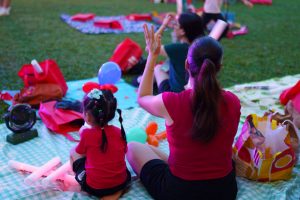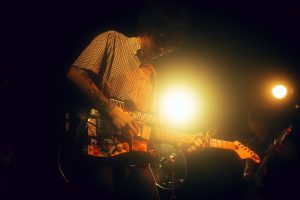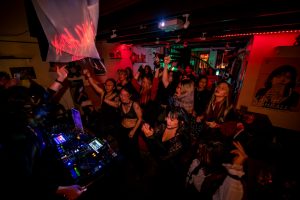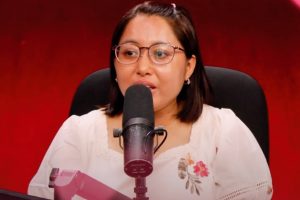Top image courtesy of Chris Hortin Tan
The whole arena falls into a silent hush. The two tennis players on the centre court lock eyes on each other before service resumes.
The gaze of hundreds in attendance is affixed on the two. A rally ensues, and a match point is won as cheers break out.
As a casual tennis fan of the Nadal-Federer era, the frenzy surrounding this age-old sport has never ceased to amaze me. Whether it’s the brilliance of that rivalry, the dominance of the Williams sisters, the elegant white outfits paraded on the Wimbledon grass plains or the emergence of present-day stars Carlos Alcaraz and Emma Raducancu—tennis is a global spectacle to be enjoyed by all.
Beneath that spectacle is a graceful exchange between two strong-willed professionals at peak physical prowess. But, more than endurance or stamina, there is a dogged determination and mental resolve that comes with using their senses of sight, sound and touch. It’s an art form to behold.
Meanwhile, a quiet revolution has emerged. Soundball Singapore, known to its members as Soundball SG, is taking sight out of the equation with blind tennis. It’s a testament to the mental resolve, resilience, and determination of the visually impaired community—defying convention and challenging age-old perceptions.
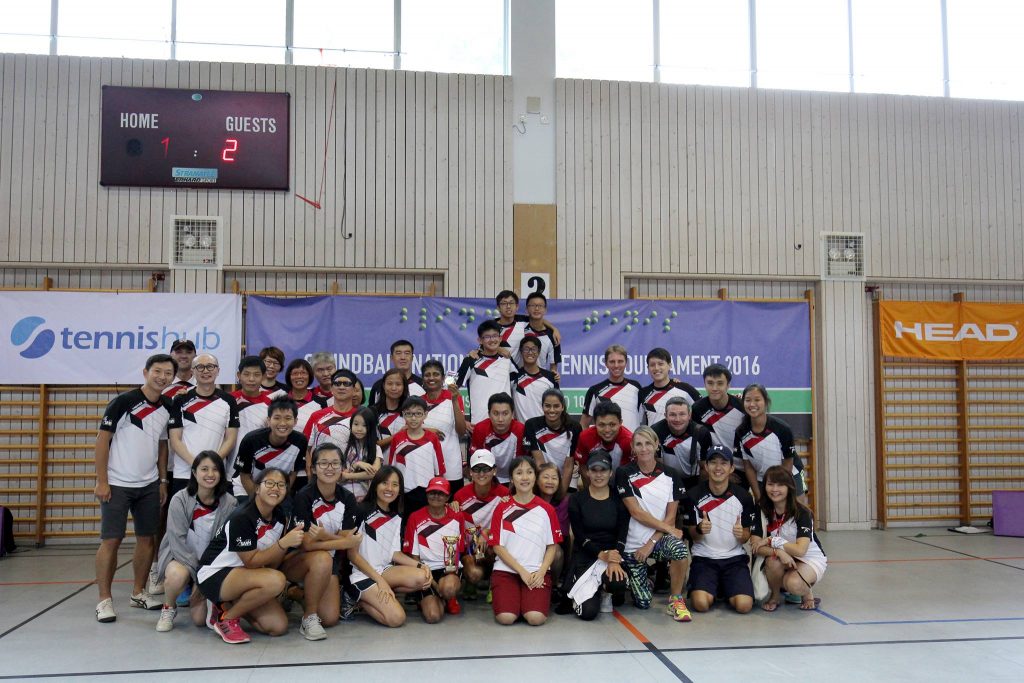
Unveiling Soundball Singapore’s Mission
Soundball SG, a ground-up initiative, traces its roots back to a group of passionate individuals who have been driven by a shared desire to make tennis accessible to all, regardless of visual impairment. In 2012, founder Sook Zhen discovered blind tennis in a BBC documentary.
Faced with limited resources but a great commitment to inclusivity and empowering the visually impaired, she procured specialised soundballs. She organised the initiative’s first few games at the Singapore Association for the Visually Handicapped (SAVH)–albeit the facilities’ uneven grounds being less than ideal.
A key component in the game of blind tennis is the tactile enhancements made on the flat courts, allowing the visually impaired players to feel their way around the court through their feet and racquets. The uneven surface meant unpredictable ball bounces, on top of posing a risk to the players.
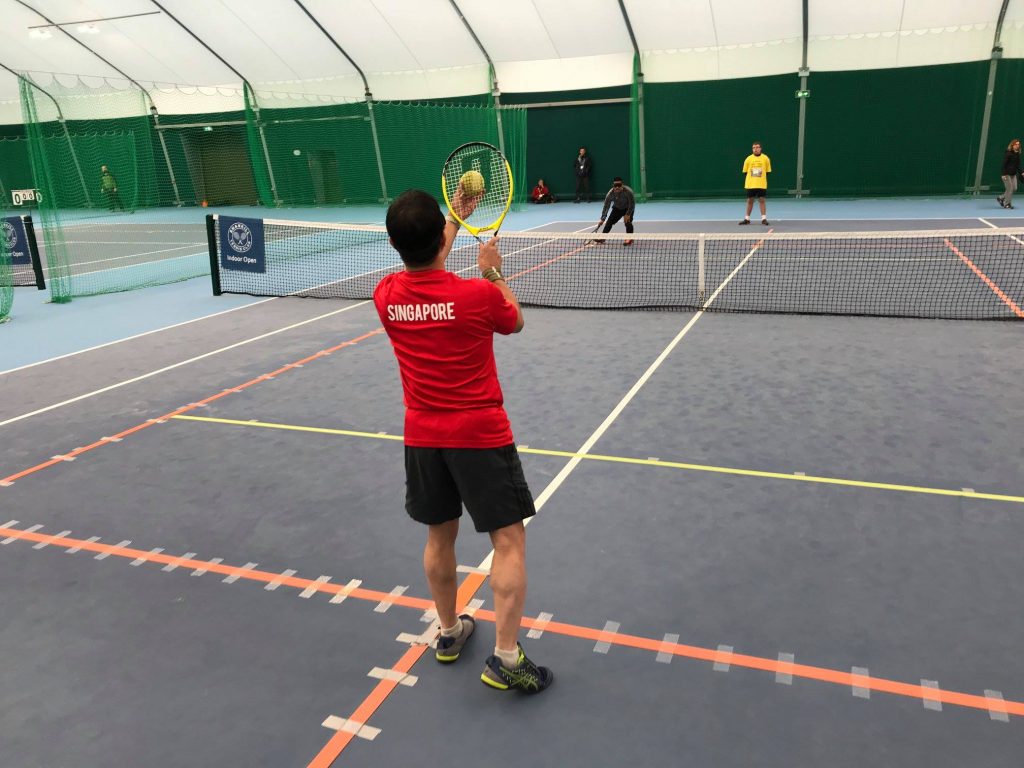
Despite the challenges, Soundball SG trudged through, eventually securing the use of Pathlight School’s facilities for weekly sessions. Co-founder Kenneth Ng’s efforts expanded training locations to include United World College, leading to the organisation’s first local blind tennis tournament.
Speaking of humble beginnings, ground-up initiatives such as Soundball SG exemplify this notion. Founded by individuals like Sook Zhen and Kenneth Ng, their drive stems from a passion for fostering an inclusive society for the visually impaired. Working hand-in-hand with dedicated volunteers, it was their determination for the cause that helped see this ground-up initiative continue operating today.
In a 2023 Groundup Initiative study by National Volunteer & Philanthropy Centre (NVPC), a ‘Groundup’ is defined as a “local form of community-based initiatives where self-organised voluntary groups provide not-for-profit services to address community needs and issues”.
This ground-up approach sets it apart from non-profit organisations—while both are not-for-profit, Groundups are not registered organisations.
Simply put, just like Sook Zhen and Kenneth with Soundball SG, a Groundup can be started by individuals who voluntarily come together to carry out a self-organised project or initiative to benefit the community.
From the early workings of Sook Zhen and Kenneth to establish blind tennis as a Groundup in Singapore, Soundball SG has since forged a partnership with SportCares, granting access to public tennis courts across Singapore. This collaboration not only provided necessary training facilities but also increased the game’s visibility, spreading awareness of Soundball SG’s mission.
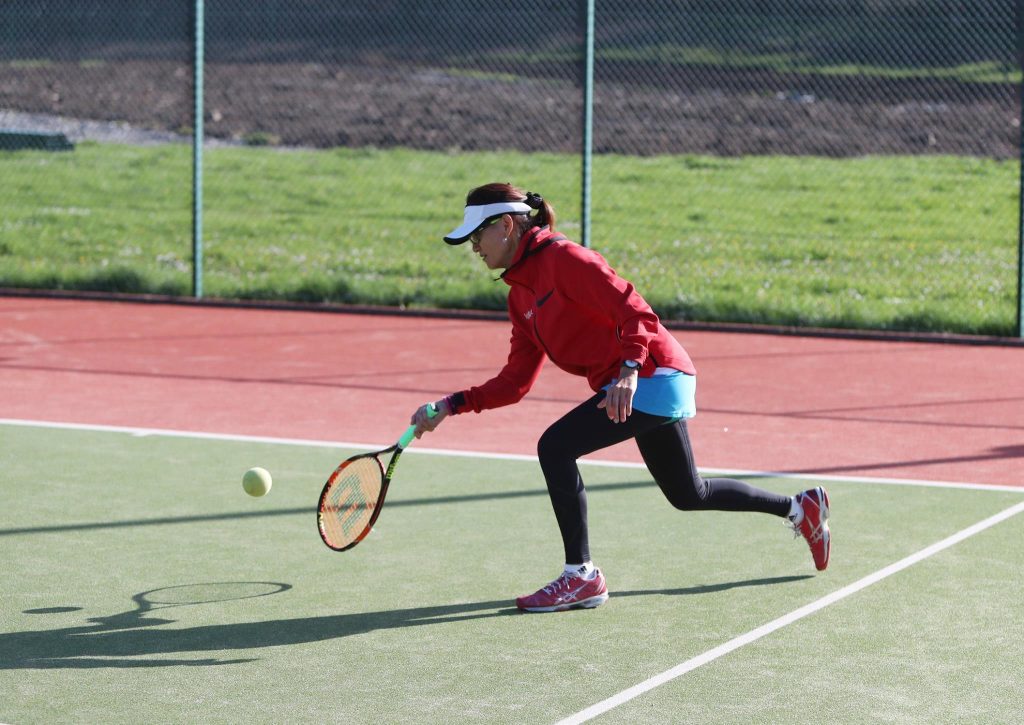
At the helm of this movement now is Chris Hortin Tan, a woman whose personal journey exemplifies the transformative impact of Soundball SG.
Chris, now 50, reflects on her initial scepticism when introduced to blind tennis. “I couldn’t fathom how a blind person could play tennis,” she admits, recalling her journey with partial sight loss due to juvenile glaucoma since she was 14. But curiosity led her to try it, and what she discovered was nothing short of life-changing.
“Soundball SG opened my eyes—or rather, my ears—to a whole new world of possibilities,” Chris shares with a smile in her voice. “It’s not just about hitting a ball; it’s about the sense of belonging, the camaraderie, and the shared passion for the game. The joy I get when I win a point and the cheers from my peers and volunteers have helped give me back the confidence I thought I lost.”
And speaking of confidence, Chris admits, “If not for blind tennis, I probably wouldn’t have had the courage to share my story.” She shares that being around her peers who are going through similar (or, for some, even worse) challenges in life has helped her take ownership of her situation and make the most of it.
Blind Tennis, A People’s Game
While speaking with Chris, it’s endearing to hear how a simple game like blind tennis, with its unique blend of auditory cues and tactile enhancements, has levelled the playing field for visually impaired players like Chris to enjoy the game once more.
After all, tennis (albeit being the global spectacle it is now) has always been a man-made game with man-made rules—and blind tennis is a perfect example of how rules can always be changed to fit the people playing.
Soundball SG currently stands as one of the few initiatives in the cause area of sports, which make up only 7 percent of services offered by Groundups, and is part of only 4.6 percent of Groundups that help persons with disabilities, according to NVPC’s 2023 Groundup Initiative Study.
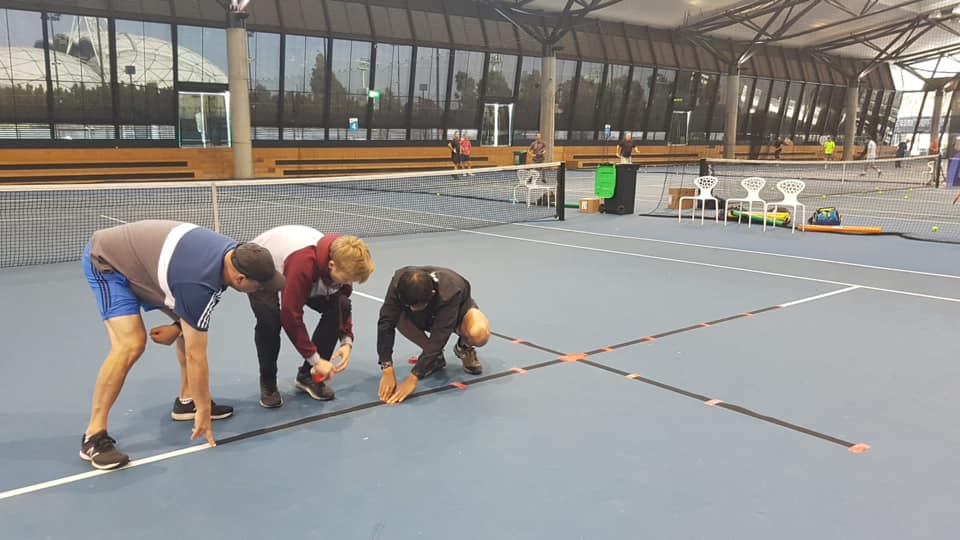
Blind tennis has evolved significantly, accommodating various levels of visual impairment through different classifications. Each classification comes with specific rules regarding court and racquet sizes. Unlike conventional tennis, blind tennis permits multiple bounces (up to four, depending on classifications), with specialised sponge balls emitting audible sounds to help players track the ball’s movement.
However, beyond the game being an inclusive opportunity for the visually impaired, it is a people game at its core–with the unwavering support of sighted individuals and volunteers that truly set blind tennis apart. From serving as ball pickers to providing guidance and encouragement during gameplay, volunteers play a vital role in fostering inclusivity and camaraderie on the court.
In this dynamic arena, communication and collaboration are key. Players rely on each other’s skills and feedback through their rallies and exchanges, fostering unity and respect, while volunteers themselves get to develop a greater sense of empathy.
That very spirit of togetherness and “being surrounded by like-minded individuals” is one of the top three motivations to start (and sustain) ground-up initiatives, according to the NVPC’s 2023 Groundup Initiative Study.
“For us, Soundball SG is more than just a game. It’s a community—a family—that supports and uplifts each other,” says Chris. “It’s about breaking down barriers and proving that anything is possible with the right mindset and support system.”
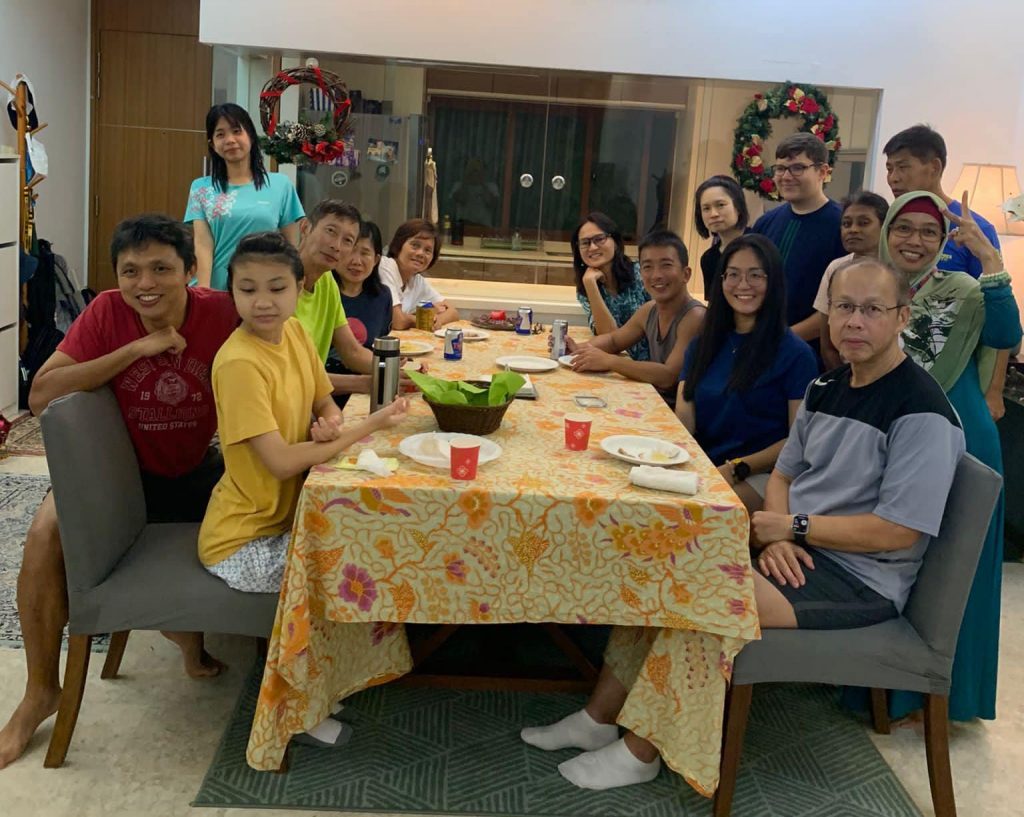
That Off-Court Glow-Up
Beyond the four corners of the tennis court, Soundball SG has grown to be a community that serves as a champion for personal growth and development. Through workshops, social events and community outreach programs, Soundball SG empowers its members to embrace their abilities and live life to the fullest.
Chris opens up about that off-court glow-up. “I’ve seen players come in who were timid and shy at the beginning and are now the most talkative and outgoing people in the bunch out of the court when we go for our makan (meals) after games.”
“Soundball SG isn’t just about playing tennis; it’s about empowering individuals to reach their full potential,” says Chris. “It’s about showing the world that disability does not define us; it’s about what we can achieve when we come together as a community.”
In one of their workshops, members shared their experiences and challenges through sharing stories and learning about each other’s difficulties in life—both amongst visually impaired players facing different degrees of blindness and sighted volunteers alike.
“During that sharing, you realise you’re not the only one suffering this mental stress. You learn how to overcome the fear and obstacles through that exchange,” Chris recalls.
“It was incredibly moving to see everyone opening up and supporting each other. We realised that we’re not alone in our struggles—that we’re stronger together.”
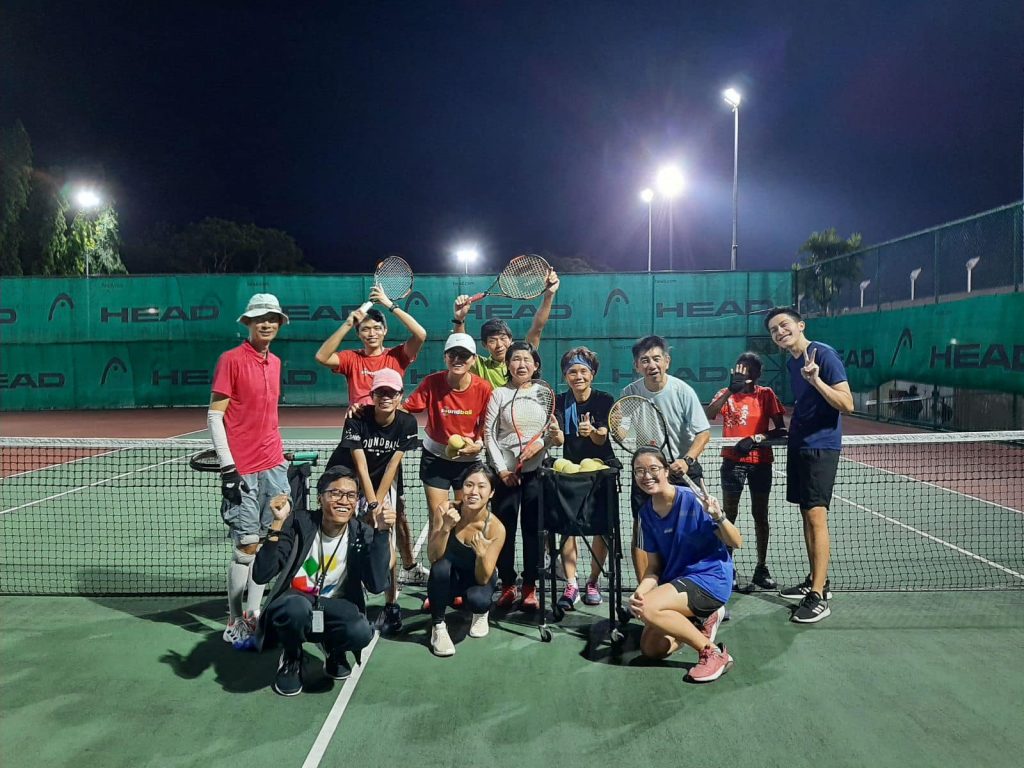
It hasn’t been the easiest of roads for Chris. She admits that a lack of awareness and publicity means they don’t have that many players.
“People are still sceptical, and they need to see how blind tennis works for themselves. With the obvious limitations the visually impaired community has, we have to work harder to sell it to them.”
This lack of publicity and awareness and the difficulties in recruiting members and volunteers are among the top five areas needing significant improvements, commonly shared by fellow Groundups in the NVPC’s 2023 Groundup Initiative Study. Chris and Soundball SG also face the problem of volunteer recruitment.
“We need more volunteers,” she quipped instantly when asked what support they urgently needed.
Despite the challenges of managing a Groundup, Chris remains steadfast in her commitment to Soundball SG’s mission. “It hasn’t always been easy,” she admits. “But seeing the impact we’ve had on people’s lives—seeing the smiles on their faces and the joy in their hearts—it’s all worth it.”
Soundball SG’s commitment to accessibility extends beyond the court. The organisation raises awareness of visual impairment, challenging stereotypes. Through outreach initiatives, it aims to create a more inclusive society where everyone’s contributions are valued.
One particularly memorable event was a community outreach program where Soundball SG members visited local schools to raise awareness about visual impairment. “It was amazing to see the kids’ faces light up when they learned about blind tennis,” shares Chris.
“They were so curious and eager to learn, and it was incredibly rewarding to be able to educate and inspire them.”
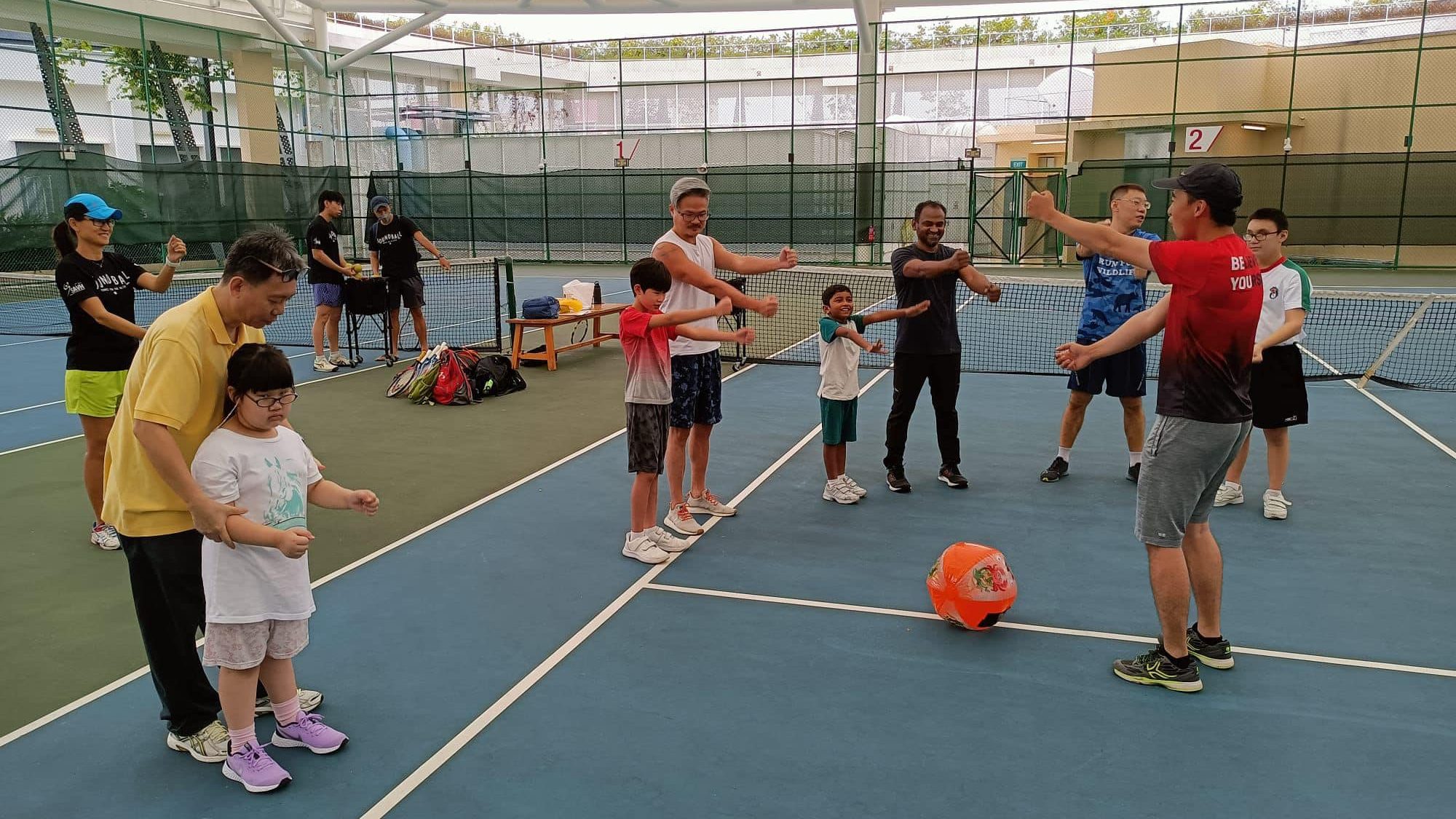
Through their social events, Soundball SG members forge deep connections and friendships that extend far beyond the tennis court. “We’re like a family,” says Chris. “We support each other through thick and thin, celebrating each other’s victories and lifting each other up during tough times.”
Despite being partially sighted, Chris initially resisted using a walking cane. However, witnessing the collective ‘we’re in this together’ spirit of the community empowered her to embrace it. She recounts: “I’ve had accidents navigating without a cane, but seeing my friends confidently using theirs inspired me to do the same.”
Chris remains hopeful about the future. “There’s still so much work to be done,” she acknowledges. “But with the unwavering support of our members and volunteers, I believe we can make a real difference in the lives of those living with visual impairment.”
With NVPC’s 2023 Groundup Initiative Study outlining steps toward building an enabling groundup ecosystem through advocacy, growing a resource hub, building collaborations and empowering membership through their BAGUS Together platform, that very help is on its way for Soundball SG and fellow groundups alike.
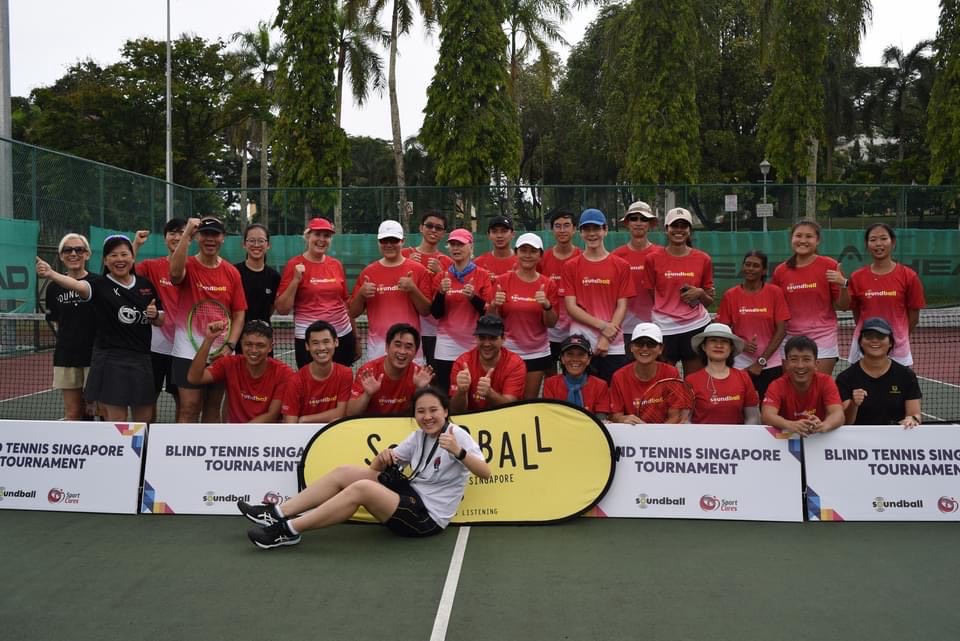
One Match-Point at a Time
As Soundball SG continues to grow and evolve, Chris’s vision for the future is as bold as it is inspiring. “I dream of a world where blind tennis is not just a niche sport but one that’s easily accessible globally,” she says with determination.
It’s a dream not far off, with the recent inclusion of the sport in the recently concluded Australian Open grand slam. And Chris hopes that one day, she too could bring her players to compete in such world championships, and eventually have the sport be an official game in the Paralympics.
Chris profoundly summed the heart of the legacy she hopes to live (and leave) with Soundball SG. “My motto in life has always been ‘acknowledge and understand my disability but appreciate my ability.”
Her heart in pushing this initiative forward is as powerful as every backhand she returns in her games. With each serve, volley, and victory, Soundball SG is rewriting the rules of the game to create a more inclusive world, one match at a time.
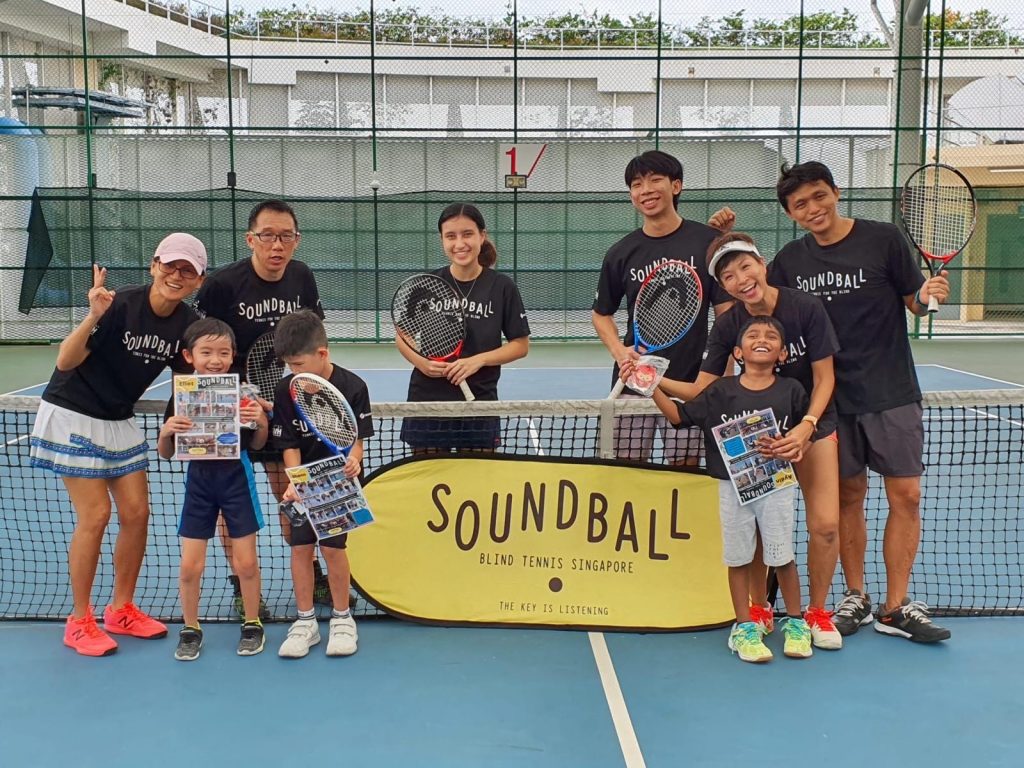
Soundball SG’s journey underscores the importance of ground-up initiatives in driving social change and fostering community empowerment. Over the years, Soundball SG has evolved from a simple idea into a thriving community, thanks to the dedication and hard work of volunteers like Chris.
“We may not have the resources of a professional organisation, but what we lack in funding, we make up for in passion and determination,” she says proudly.
“What’s next? It’s to continue pushing this forward. I’ve personally seen the big impact Soundball SG has had in my life–making friends, building a community and support system, and being able to give back my time to society.”
“And now, it’s time to keep pushing this for as long as I am physically able,” added Chris.


